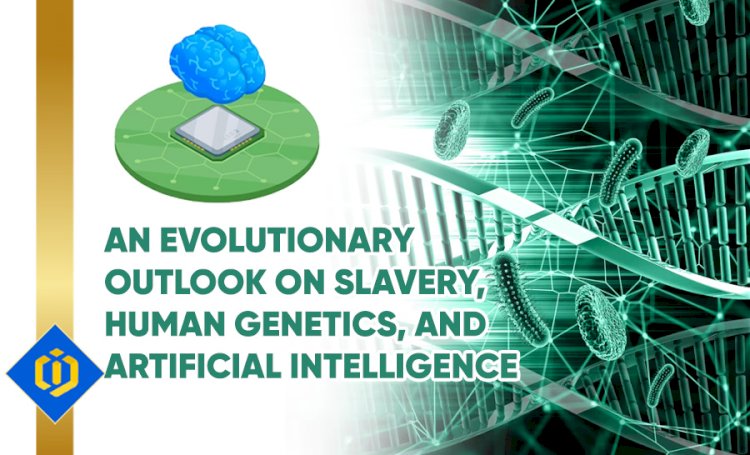Taking an Evolutionary Outlook on Slavery, Human Genetics, and Artificial Intelligence

This article traverses the delicate terrain of slavery and relates it to humanity's genetic continuum and the emerging capabilities of artificial intelligence. It is intended to provoke thoughtful reflection and encourage dialogue about the nuances of our collective past, our shared genetic heritage, and our rapidly evolving future with AI.
Slavery, a socio-economic system rooted in human history, dates back thousands of years, evidenced by early documents, such as the Sumerian Ur-Nammu codex from 2100 BC. However, its existence in different cultures and civilizations is a solemn reminder of humanity's capacity for cruelty and inequality. The Atlantic slave trade and similar mass movements have left indelible marks on our collective gene pool, illustrating the diverse but interwoven fabric of human evolution.
At the molecular level, human genetic diversity reveals our common ancestors. Homo sapiens, despite external variations, share approximately 99.9% of their genetic code, reinforcing the fundamental premise of human equality. Consequently, attempts to justify or validate slavery on the basis of genetic superiority or inferiority grossly interpret biological reality. Such discriminatory views lack scientific support and contradict our shared genetic identity.
As we navigate the genetic continuum, we enter the realm of artificial intelligence (AI), a rapidly evolving frontier that promises to fundamentally change our world. However, it also raises profound ethical questions that bear a striking resemblance to those surrounding the historical institution of slavery.
The ethical framework for the development and use of AI must guard against the recreation of operating systems reminiscent of human slavery. As we empower machines with increasing autonomy, we must ensure that they are designed and programmed to respect human dignity, promote equality and reflect our shared genetic heritage. This concept involves the avoidance of patterns of behavior that could potentially lead to the “enslavement” of AI when machines are exposed to oppressive conditions or deprived of fundamental ethical considerations.
Moreover, as the decision-making capabilities of AI evolve, we must be wary of algorithmic biases that can inadvertently perpetuate societal inequalities, much like the misguided ideologies that once justified slavery. Ensuring fairness and transparency in AI algorithms is essential, following our shared genetic equality.
In conclusion, the lessons learned from the history of slavery, seen through the lens of our genetic heritage, can provide valuable insights into how we address the ethical challenges of AI. By acknowledging our shared genetic heritage and affirming our commitment to equality and justice, we can steer our AI-led future in a more just and humane direction.
Author: Pooyan Ghamari, Swiss Economist & Visionary

 content-team
content-team 






















